Tanzanian experiment. How Julius Nyerere built the “socialism of the African community”
In 1885, a vast territory in eastern Africa was colonized by Germany. However, during the First World War, British and Belgian troops invaded German East Africa. After the war, the former German colony was divided between Belgium and Great Britain. Belgium moved the lands of modern Rwanda and Burundi, and Great Britain - Tanganyika, which in 1922 became the mandate territory of the League of Nations under the administration of Great Britain. In Tanganyika 13 on April 1922, Julius Nyerere was born - a man who was destined to play a crucial role in gaining political independence in the mandated territory and in the future construction of a sovereign Tanzanian state.
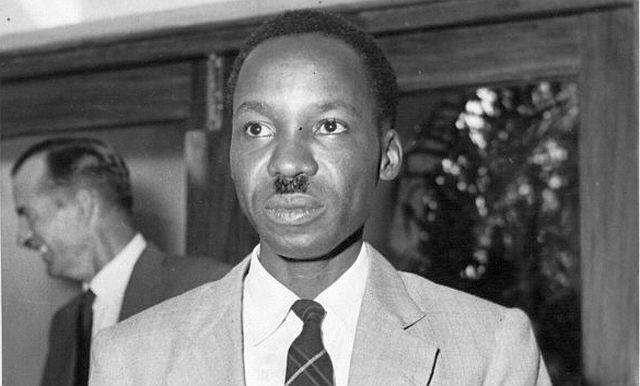
Julius Kambarage Nyerere came from the family of the tribal chieftain of the small village of Butiama, on the eastern shore of Lake Victoria, and belonged to a small Zanaki people, one of the Bantu-speaking peoples of Tanganyika. Like most African leaders, Julius's father was a polygamist - he had 22 wives, the fourth of whom was the mother of the future Tanzanian president. From the 22 wives, the chieftain had 26 children. The head of the family tried to give them all a decent education by the standards of the African colony at that time. Julius was the most powerful. He was sent to study at the Catholic school at the mission in Musoma, then to the school at the mission in Tabor. After Julius completed his high-grade school, in 1943, he went to Uganda - Makerere College, which was considered a very prestigious East African institution. After graduating from college in 1945, Julius returned to Taboura, where he began working as a teacher of biology and English at a local Catholic school. So began his teaching career. Apparently, the young man was a capable teacher - he was noticed and sent to study at Edinburgh University in Scotland in 1949. This trip played a crucial role in the fate of Nyerere. It was in Great Britain that the future president first became acquainted with socialist and Marxist ideas and became interested in politics. In 1952, Nyerere, who received a master’s degree from the University of Edinburgh, returned to Tanganyika. By this time in British East Africa was already restless. In Kenya, the Mau Mau movement grew, colonial troops were thrown against the rebels.
As a rule, the national liberation struggle in the colonies was led by the “best people” of Africa — graduates of European universities and colleges who claimed to be the future elite of the new independent states. Julius Nyerere was also one of the best teachers in Tanganyika for that period. In 1954, he founded a political organization - the Tanganyika African National Union (TANU). His goal was proclaimed the struggle for political independence Tanganyika. Under the leadership of Nyerere, the union quickly became one of the leading national liberation organizations of the African continent as a whole. Already in 1958, TANU took the majority of seats in the legislative bodies of Tanganyika. The organization maintained close ties with similar national liberation movements in other African colonies in Southern and Eastern Africa. 15-18 September 1958 was held in Mwanza, under the auspices of TANU, a meeting of leaders of political parties and organizations in Eastern and Central Africa, in which representatives from Tanganyika, Zanzibar, Kenya, Nyasaland (Malawi) and Uganda participated. Julius Nyerere sympathized with the Pan-African ideas and considered the possibility of creating after the declaration of independence of these countries of the Federation of East Africa.
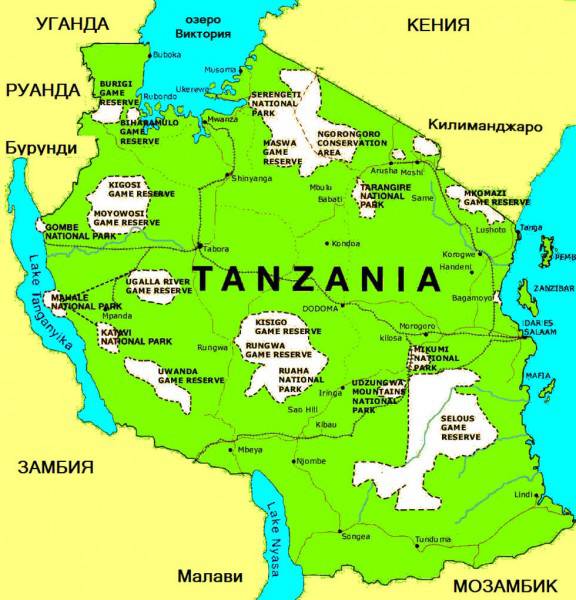
Unlike neighboring Kenya, the national liberation struggle in Tanganyika did not become armed - not only because Tanganyika was a mandated territory of the UN, not a colony, but also because of the views of Nyerere himself. He already managed to achieve a lot. 2 September 1960 Mr. Nyerere was appointed Chief Minister of Tanganyika, and 1 May 1961 was appointed Prime Minister. 9 December 1961 was declared the independence of Tanganyika. At first, an independent state had the status of a kingdom within the British Commonwealth, and the British Queen Elizabeth II remained the monarch. Julius Nyerere served as prime minister of the independent Tanganyika. During this period, he saw the main tasks for himself, firstly, the transformation of Tanganyika from a semi-colony into a truly independent state, and secondly, integration with the neighboring island of Zanzibar. 9 December 1962, Tanganyika was proclaimed a republic, and Julius Nyerere became its first president.
10 December 1963 of the United Kingdom granted political independence to the island of Zanzibar, which became a constitutional monarchy led by the Sultan. However, antimonarchic sentiments increased in Zanzibar, exacerbated by social and national contradictions between various groups of the sultanate’s population. As a result, on January 12, 1964, the Zanzibar revolution occurred, overthrowing the power of the sultan. The history of the Zanzibar revolution is a special topic requiring a separate story. During the revolution in Zanzibar attacks on the Arab-Persian population of the island, the former elite of the sultanate. As a result, many Arabs and Persians left Zanzibar forever. The People’s Republic of Zanzibar and Pemba, headed by Sheikh Abeid Amani Karume, were proclaimed. Representatives of Zanzibar and Pemba, who feared the restoration of the monarchy by the forces of neo-colonialists, entered into negotiations with Julius Nyerere on the union of Zanzibar and Tanganyika. 26 April 1964 was proclaimed by the United Republic of Tanzania. Its president was Julius Nyerere, and the vice president was Abeid Amani Karume.
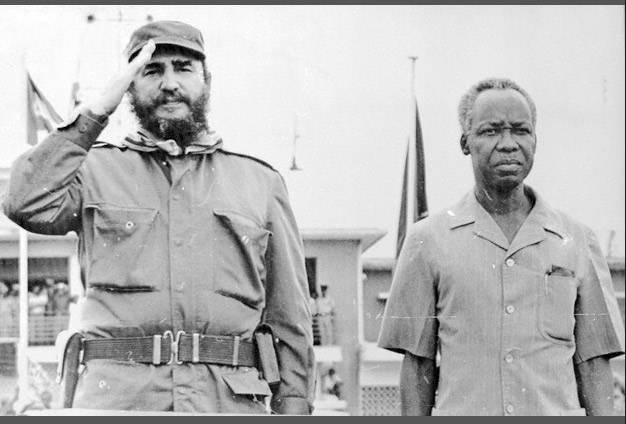
Nyerere and Fidel Castro
The United Republic of Tanzania, like many other African countries, has proclaimed a policy of building socialism. However, unlike most countries of the continent, for which socialist orientation was only a way of receiving material assistance from the Soviet Union or China, in Tanzania serious work was really carried out on the socialist modernization of the political and economic spheres of society. In 1967, the African National Union of Tanganyika adopted the Arusha Declaration, which was the first document reflecting the basic principles of the country's development along the socialist path. It was in the Arusha Declaration that the foundations of “socialism of ujamaa” were first formulated - a concept with which Tanzania and Julius Nyerere became associated for many years. “Ujamaa” (Swahili: Ujamaa) is actually a community. Julius Nyerere, despite his sympathies for Marxism, was nevertheless a supporter of African identity and argued that such forms of social organization are characteristic of the African continent that exclude the capitalist path of development and fit perfectly into the framework of the socialist model. “Ujamah socialism” is communal or collectivist socialism, which is a modern adaptation of the traditional structure of the African rural community. It is based on ideas of mutual aid and mutual support inherent in large communities of African villages.
The concept of ujamaa was based on the following principles: rejection of the ideology of capitalism; denial of private ownership of the means of production and exploitation of man by man; recognition of the existence of classes in African society, but the denial of the large role of class struggle in social relations in African countries; a course of self-reliance with the restriction of foreign aid and the mobilization of all the resources of the people for building a better society. As a teacher, Nyerere believed that the basis of social development is the human desire for moral and ethical improvement, and these are the values he tried to translate into Tanzanian society.
However, it was not enough to accept the declaration - it was required and implemented. In Tanzania, a socialist reorganization of the economy began. Foreign banks, industrial enterprises and plantations were nationalized, in the long term the full nationalization of all retail trade was considered. But the main reforms were to be carried out in the field of agriculture. Tanzania headed for the collectivization of the agrarian sector, which envisaged the creation of “socialist villages” - “Vijijivya ujamaa”. In such villages, not only land, but also water sources, schools, shops were recognized as collective property. Thus, socialism within the framework of the Nyerere concept was understood not only as a path of social development, which allows for the economic and social modernization of the country, but also as a tool for the preservation of all the positive components of the traditional African community structure.
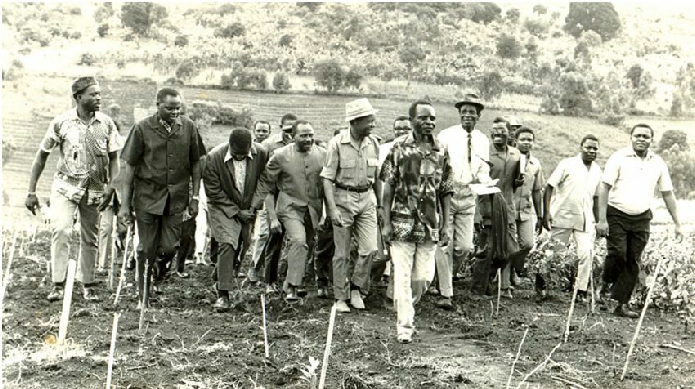
However, although ideally Nyerere expected to transfer the entire economy of the country to collectivist and cooperative bases, in fact Tanzania still had to put up with the private sector of the economy and even allow limited foreign investment in 1977. The obsession with traditionalism of the African community preserved the backwardness of agriculture and impeded the development of modern types of production. But, nevertheless, it was during the reign of Nyerere that Tanzania achieved such success in the economy and social sphere that any country of the continent could envy. To begin with, being one of the largest countries in the region, Tanzania preferred to invest not in the military sphere and the strengthening of special services, but in the social infrastructure.
After becoming president of independent Tanganyika in 1962, Julius Nyerere accepted the country as extremely backward, with two (!) Engineers and twelve (!) Doctors from among the indigenous people. The overwhelming majority of the population of young Tanganyiki barely knew how to read and write - for example, only 50% of children attended elementary schools, and only 5% of the population of the former mandate territory had complete secondary education. In the past, the school teacher himself, Nyerere, perfectly understood the importance of education for the development of the country, so one of his first steps as head of the country was to begin work on creating a network of secondary schools and providing general secondary education. Already by 1965, the president of the country, by then only four years of being independent, had succeeded in reaching all of the children in Tanzania with a seven-year education system. Colleges and institutes were opened, and capable young men and women were sent abroad for higher professional education. This policy has yielded results. Already after 15 years after independence, Tanzania surpassed all other countries in Africa south of the equator in the number of medical workers, teachers and engineers and in the quality of their education. For the most part, Tanzanian specialists were trained in the Soviet Union and the countries of Eastern Europe.
In 1977, on the basis of the African National Union of Tanganyika and the Afro-Shiraz Party of Zanzibar, a new political party of the country was created - Chama Cha Mapinduzi - the Revolutionary Party, which proclaimed its ideology “socialism ujamaa”. The revolutionary party became the only party in the country, but about the “undemocratic” one-party system Nyerere did not complex - he considered it the best way against tribalism - the most serious problem of African states. In addition to the fight against tribalism, the vector of the fight against corruption was also set. Members of the ruling party, to which all the leading cadres of the country belonged, were forbidden to have more than one salary, more than one house and own securities or shares of companies. Significant restrictions were also imposed on the level of personal consumption, since, according to Nyerere, party members should have been an example of high morality for the rest of Tanzanians.
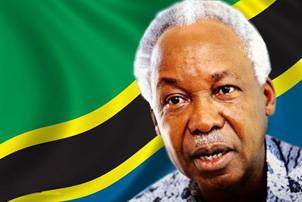
The foreign policy of Tanzania was also progressive. So, Julius Nyerere greatly supported the socialist France Albert Rene, who came to power in a coup in the Seychelles. In 1978-1979 Tanzania waged war with Uganda, which resulted in the overthrow of Uganda’s bloody dictator Idi Amin Dada. The Tanzanian army managed to crush the Ugandan troops, even though on the side of Idi Amin, a three thousand Libyan expeditionary force, sent by Muammar Gaddafi to Uganda, fought. The Tanzanian state also greatly helped the national liberation movements in the countries of South Africa, primarily in South Africa, Mozambique and Angola. It should be noted that, despite the good relations with the Soviet Union, Tanzania maintained a friendship with China, moreover - it was more likely to the Chinese model of socialism, which was considered as more acceptable to the third world countries.
In 1985, 63-year-old Julius Nyerere, by this time 24, was the head of state, voluntarily resigned from the presidency, and in 1990, he left the post of head of the Revolutionary Party. By the way, Chama Cha Mapinduzi is still the ruling party of Tanzania, and in 2013, it was admitted to the Socialist International. After retiring, the ex-president returned to his native village of Butiama, where he engaged in agriculture and led the way of life of an ordinary peasant. But after leaving the post of head of state, Nyerere enjoyed the great respect of ordinary Tanzanians, who called him nothing more than “Mwalimu” - “Teacher”. In 1999, Julius Nyerere died in the UK - in a hospital for leukemia patients. In the Tanzanian history, he has always remained a positive figure, and to be a president in Africa who is not cursed is a great rarity.
Information